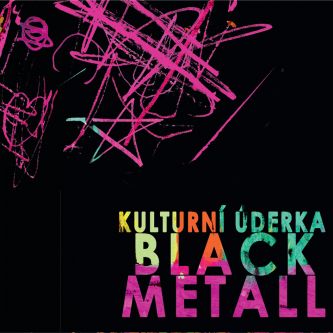
Garage rock band Kulturní Úderka does not hesitate to add some blues into their songs, to spice them up with a sharp riff or to tune them down into an acoustic ballad. The third album is called Black Metall, but don’t look for metallers among the listeners. The name of the recording points to its rawness and roughness and doesn’t seem to correspond with the content. The basis of the band is in the Brno alternative rock scene, but with the arrival of Bosnian keyboard player Omer Blentić, it has come to life again and the new recording is proof of that.
Kulturní Úderka originated in the 1990s and at that time was strongly influenced by the Brno alternative scene. "We keep references to the scene to this day and it is reflected in both the lyrics and music," says the author, singer and guitarist Štěpán Dokoupil. “The lyrics are quite subconscious and intimate for us, of course, thanks to Omer, we have been influenced by the melancholic Sarajevo, but there are also many fun topics from life in Brno. Overall, it is a raw recording, ranging from the 60s psychedelic blues to the American club scene represented by John Spencer Blues Explosion.” However, Kulturní Úderka has its own sound and expression, and is definitely authentic.
Although the line-up currently consists of five members, Kulturní Úderka started the recording as a quartet of musicians from Brno and Sarajevo. The whole album strongly follows the comeback recording Sarajevská Katarzijja (i.e. Sarajevo Katarzijja, Indies Happy Trails Records 2018). It was created in Sarajevo, but this time the band threw themselves into Prague's Golden Hive studio. Štěpán Dokoupil compares the new album with the previous ones by Kulturní úderka: “Black Metall is the most colorful one, you can hear all our moods on it, but the rock energy prevails. The previous recording, Sarajevská Katarzija, is mainly an acoustic album created after a long break from the band during a week in the heart of Sarajevo. Well, Rock’s Groove is a debut album packed with youthful energy and indiscretion.” The record was produced by Bert Nevem, mix and mastering was done by Amak Golden.